This article was co-authored by Padam Bhatia, MD. Dr. Padam Bhatia is a board certified Psychiatrist who runs Elevate Psychiatry, based in Miami, Florida. He specializes in treating patients with a combination of traditional medicine and evidence-based holistic therapies. He also specializes in electroconvulsive therapy (ECT), Transcranial Magnetic Stimulation (TMS), compassionate use, and complementary and alternative medicine (CAM). Dr. Bhatia is a diplomat of the American Board of Psychiatry and Neurology and a Fellow of the American Psychiatric Association (FAPA). He received an MD from Sidney Kimmel Medical College and has served as the chief resident in adult psychiatry at Zucker Hillside Hospital in New York.
There are 9 references cited in this article, which can be found at the bottom of the page.
This article has been viewed 65,637 times.
If you have anxiety, finding the right treatment may seem like a daunting task. One treatment option for anxiety is medication, though finding the right medication can be even more confusing. Learn how to choose anxiety medication so you can get proper treatment.
Steps
Seeking Medical Attention
-
1Visit your doctor. The first step in getting anxiety medication is going to see your doctor. Start with your primary physician to get a physical. Your physician will determine if you have an underlying medical cause for the anxiety.
- When you go to your doctor, you should be honest about your symptoms. Tell your doctor about your anxieties and what your general mood has been lately.[1]
- After you receive a diagnosis from either your doctor, you can begin discussing medication and other treatment options.
-
2Get a referral to a mental health professional. After seeing a doctor, you may be referred to a psychiatrist or other mental health professional. This may be the case if you have an anxiety disorder that needs specific treatments, like therapy, in addition to medication.[2]
- You may be referred to a psychiatrist, clinical psychologist, occupational therapist, or social worker.
- The mental health professional will discuss various topics with you, like your life, support system, and previous treatments. They may ask very personal questions, but try to answer them openly and honestly.[3]
Advertisement -
3Discuss the medication with your doctor. You should have a conversation with your doctor about any medication you choose to take. You should ask your doctor questions about the medication, and have your doctor explain everything in detail.[4]
- Ask your doctor to detail any side effects, as well as how long you'll need to be on the medication. In addition, you might ask about any long-term drawbacks to being on the medication for a long time.[5]
- Figure out exactly how you should take the medication. Ask about the time of day, whether you should take it with food, and how often you should take it. For instance, some anxiety medications need to be taken daily, while others are just as-needed.[6]
Choosing An Anxiety Medication
-
1Take anti-anxiety medication. Anti-anxiety medication is better known as benzodiazepines. These types of medication are considered tranquilizers because they help slow down the brain and body. They work quickly and can be taken during an anxiety attack.[7]
- Common anti-anxiety meds include Xanax, Klonopin, Valium, or Ativan.[8]
- Anti-anxiety medication can lead to dependence when taken for longer than four months.
- This type of medication can interact negatively with alcohol, painkillers, and sleeping pills.
- High risk individuals for taking anxiety medication include people over 65, pregnant women, and those with a history of substance abuse.
- Stopping taking anxiety medication suddenly may cause withdrawal. This may include increased anxiety, insomnia, shaking, rapid heartbeat, sweating, and disorientation.[9]
-
2Take antidepressant medications. Common antidepressant medications are used to treat anxiety. Antidepressants have a lower risk for dependence and substance abuse. When using antidepressants, it may take over a month to feel the effects.[10]
- Common antidepressants used for anxiety include Prozac, Zoloft, Paxil, Lexapro, and Celexa.
- Stopping taking antidepressants can cause severe depression, fatigue, irritability, anxiety, insomnia, and flu-like symptoms.
-
3Try Buspirone. Buspirone is a newer mild tranquilizer used as anti-anxiety medication. This medicine acts slower than other anxiety medication. The effects may take around two weeks to start working.[11]
- Buspirone doesn't have the same side effects as other anxiety medications. It doesn't lead to dependence as easily, there are only minor withdrawal symptoms, and it doesn't impair cognitive function as badly.
- Buspirone has been shown to be most effective with generalized anxiety disorder.
- This may be a good option for people over 65 of those with a history of substance abuse.
-
4Use beta blockers or antihistamines for performance anxiety. Beta blockers and antihistamines are sometimes used to help with anxiety. They are mostly used in connection with norepinephrine and the fight-or-flight response. Beta blockers and antihistamines can help relieve physical symptoms connected with anxiety but does nothing for the emotional symptoms.[12]
- These medications can help with things like shaking, dizziness, and pounding heart.
- They may be helpful if you have phobias or performance anxiety.
-
5Identify the side effects of the different medications. Each of the different types of medications used to treat anxiety have side effects. These side effects can vary from minor to severe. Before choosing a medication, weigh the side effects next to the benefits to make the right choice for you.[13]
- Anti-anxiety medication can cause drowsiness, slow reflexes, slurred speech, disorientation, depression, dizziness, impaired thinking, memory loss, upset stomach, and blurred vision. Some people may experience the opposite of the calming effects, experiencing mania, rage, aggression, impulsive behavior, or hallucinations.
- Antidepressants may cause nausea, weight gain, drowsiness, headaches, nervousness, decreased libido, upset stomach, and dizziness.
- Buspirone can cause stomach problems, such as nausea, constipation, or diarrhea, headaches, drowsiness, dry mouth, and dizziness.
- Beta blockers can cause abnormally slow pulse, nausea, light-headedness, and sleepiness.
-
6Choose the right medication for you. Each anxiety medication has characteristics that may influence your choice. You should think about whether you need immediate relief for a phobia or anxiety/panic attack, or whether you need something longer lasting. You should also think about whether you fit into a risk group for a particular medication, if you have medication or lifestyle choices that interfere with the meds, or if dependence is a concern.[14]
- If you need immediate help for panic or anxiety attacks, anti-anxiety medication like Xanax, Klonopin, Valium, or Ativan may be right for you.
- If you want a medication for longer management, try antidepressants.
- Beta blockers and antihistamines may be a good choice if you have a very specific phobia.
- If you have a history of substance abuse, antidepressants or Buspirone may work well. These two may also work well if you are over 65.
Deciding If Anxiety Medication Is Right For You
-
1Determine if a non-medication treatment is better. Medication can help manage symptoms during bad times. However, before you take medication, you should explore other treatment options. Many doctors and mental health professionals believe that non-medication treatments are more effective than medicine.[17]
- Non-medication treatment options include therapy, behavior therapy, relaxation and breathing techniques, cognitive therapy, diet and exercise, and working on assertiveness and self-esteem.
- These other types of treatments can help you address the underlying reasons for your anxiety and the emotional and psychological symptoms. They can also help you learn skills to manage your anxiety in your daily life.
-
2Know that medication is not a cure. Medication can help alleviate the symptoms of anxiety. However, no anxiety medication will cure you of your anxiety. Treating and curing your anxiety includes a variety of different approaches. Medications should provide short-time help while you work through issues. For some, medication can help in the long-term with chronic disorders.[18]
- Discuss with your doctor before you take medication what other treatments are available for long-term management and treatment for your specific anxiety disorder.
-
3Be patient. Finding the right treatment and medication combination for you may take some time. The first medicine you try may not the right for you, so your doctor may have to change your meds a few times before you find the right fit. Just remember to be patient as you and your doctor find the right treatment for you.[19]
- Your doctor may suggest alternatives to medication. Consider trying other forms of treatment in place of or alongside the medication.
- Make sure to follow up with your doctor and discuss any changes, symptoms, or side effects you are experiencing.
Expert Q&A
-
QuestionWhat are some safety tips for taking anxiety medication?
 Padam Bhatia, MDDr. Padam Bhatia is a board certified Psychiatrist who runs Elevate Psychiatry, based in Miami, Florida. He specializes in treating patients with a combination of traditional medicine and evidence-based holistic therapies. He also specializes in electroconvulsive therapy (ECT), Transcranial Magnetic Stimulation (TMS), compassionate use, and complementary and alternative medicine (CAM). Dr. Bhatia is a diplomat of the American Board of Psychiatry and Neurology and a Fellow of the American Psychiatric Association (FAPA). He received an MD from Sidney Kimmel Medical College and has served as the chief resident in adult psychiatry at Zucker Hillside Hospital in New York.
Padam Bhatia, MDDr. Padam Bhatia is a board certified Psychiatrist who runs Elevate Psychiatry, based in Miami, Florida. He specializes in treating patients with a combination of traditional medicine and evidence-based holistic therapies. He also specializes in electroconvulsive therapy (ECT), Transcranial Magnetic Stimulation (TMS), compassionate use, and complementary and alternative medicine (CAM). Dr. Bhatia is a diplomat of the American Board of Psychiatry and Neurology and a Fellow of the American Psychiatric Association (FAPA). He received an MD from Sidney Kimmel Medical College and has served as the chief resident in adult psychiatry at Zucker Hillside Hospital in New York.
Board Certified Psychiatrist Do not drink alcohol, as it can interfere with your medication. Also, talk to your doctor about the side effects of your medicine, including which ones are minor and whether there are any serious side effects to watch out for.
Do not drink alcohol, as it can interfere with your medication. Also, talk to your doctor about the side effects of your medicine, including which ones are minor and whether there are any serious side effects to watch out for. -
QuestionIf I wanted to start taking medication for anxiety, what are some questions I should ask my psychiatrist?
 Padam Bhatia, MDDr. Padam Bhatia is a board certified Psychiatrist who runs Elevate Psychiatry, based in Miami, Florida. He specializes in treating patients with a combination of traditional medicine and evidence-based holistic therapies. He also specializes in electroconvulsive therapy (ECT), Transcranial Magnetic Stimulation (TMS), compassionate use, and complementary and alternative medicine (CAM). Dr. Bhatia is a diplomat of the American Board of Psychiatry and Neurology and a Fellow of the American Psychiatric Association (FAPA). He received an MD from Sidney Kimmel Medical College and has served as the chief resident in adult psychiatry at Zucker Hillside Hospital in New York.
Padam Bhatia, MDDr. Padam Bhatia is a board certified Psychiatrist who runs Elevate Psychiatry, based in Miami, Florida. He specializes in treating patients with a combination of traditional medicine and evidence-based holistic therapies. He also specializes in electroconvulsive therapy (ECT), Transcranial Magnetic Stimulation (TMS), compassionate use, and complementary and alternative medicine (CAM). Dr. Bhatia is a diplomat of the American Board of Psychiatry and Neurology and a Fellow of the American Psychiatric Association (FAPA). He received an MD from Sidney Kimmel Medical College and has served as the chief resident in adult psychiatry at Zucker Hillside Hospital in New York.
Board Certified Psychiatrist Ask questions like, "Are there any negatives to using this medication in the long term?", "Is this something I'll take for a short time or for the rest of my life?", and "Is there a risk of becoming dependent on this?"
Ask questions like, "Are there any negatives to using this medication in the long term?", "Is this something I'll take for a short time or for the rest of my life?", and "Is there a risk of becoming dependent on this?"
References
- ↑ http://www.adaa.org/finding-help/treatment/medication
- ↑ http://www.nhs.uk/Conditions/Anxiety/Pages/Treatment.aspx
- ↑ Padam Bhatia, MD. Psychiatrist. Personal interview. 12 May 2020.
- ↑ http://www.adaa.org/finding-help/treatment/medication
- ↑ Padam Bhatia, MD. Psychiatrist. Personal interview. 12 May 2020.
- ↑ Padam Bhatia, MD. Psychiatrist. Personal interview. 12 May 2020.
- ↑ http://www.nhs.uk/Conditions/Anxiety/Pages/Treatment.aspx
- ↑ https://www.helpguide.org/articles/anxiety/anxiety-medication.htm
- ↑ https://www.apa.org/monitor/2020/04/stop-antidepressants
- ↑ http://www.helpguide.org/articles/anxiety/anxiety-medication.htm
- ↑ http://www.helpguide.org/articles/anxiety/anxiety-medication.htm
- ↑ http://www.helpguide.org/articles/anxiety/anxiety-medication.htm
- ↑ http://www.helpguide.org/articles/anxiety/anxiety-medication.htm
- ↑ https://www.nimh.nih.gov/health/topics/mental-health-medications
- ↑ https://www.nami.org/FAQ/Mental-Health-Medication-FAQ/Can-I-drink-alcohol-while-taking-antidepressants
- ↑ Padam Bhatia, MD. Psychiatrist. Personal interview. 12 May 2020.
- ↑ http://www.nhs.uk/Conditions/Anxiety/Pages/Treatment.aspx
- ↑ https://www.betterhealth.vic.gov.au/health/conditionsandtreatments/anxiety-treatment-options
- ↑ https://www.nimh.nih.gov/health/topics/mental-health-medications
About This Article
Having anxiety can seem overwhelming, but there are anxiety medications that you can try to relieve your symptoms. Start by seeing your doctor, who can help determine if you have an underlying medical cause for your anxiety. Your doctor will likely refer you to a mental health professional. To help relieve anxiety attacks, your doctor may prescribe anti-anxiety medication such as Xanax or Valium. You may also be prescribed an antidepressant medication to help treat underlying issues that can cause your anxiety. Whatever medication you’re prescribed, it’s important that you follow the recommended dosage to treat your anxiety. For tips about how to decide if an anxiety medication is right for you, keep reading.
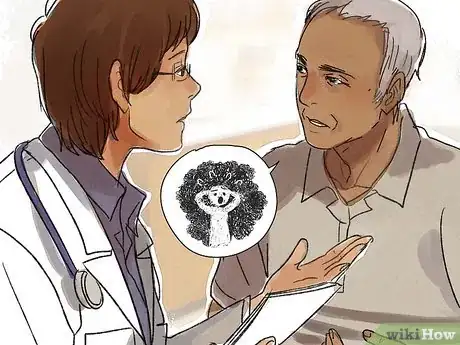

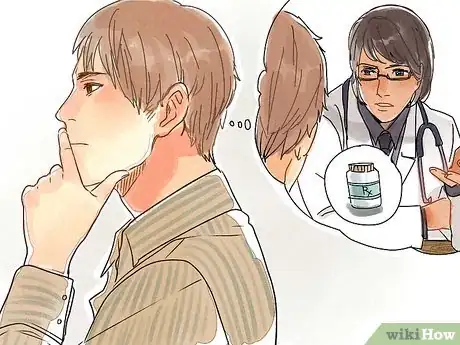
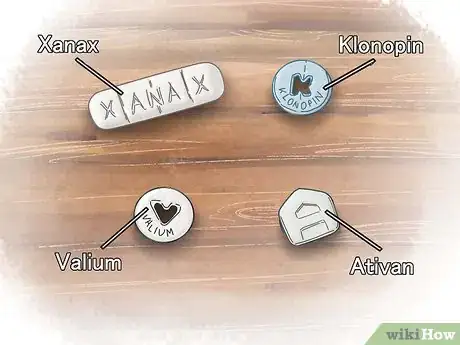
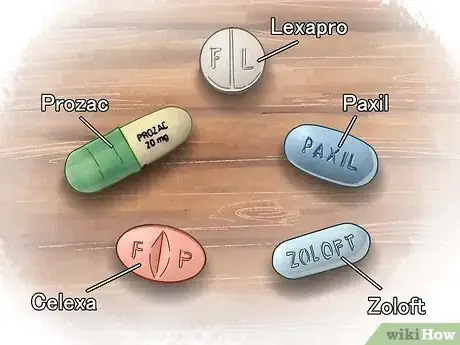

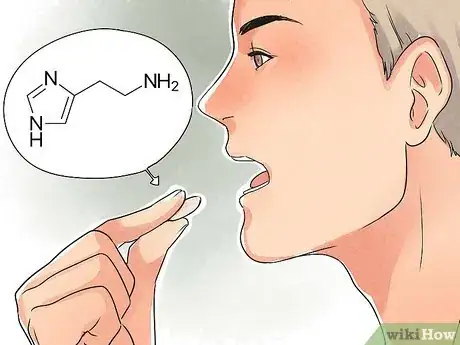
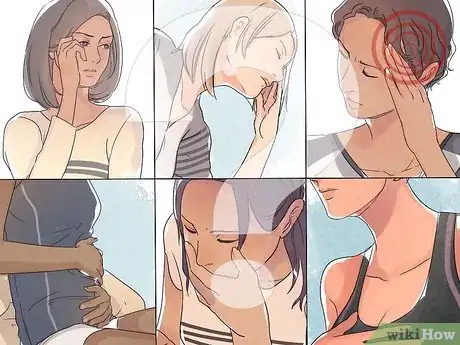


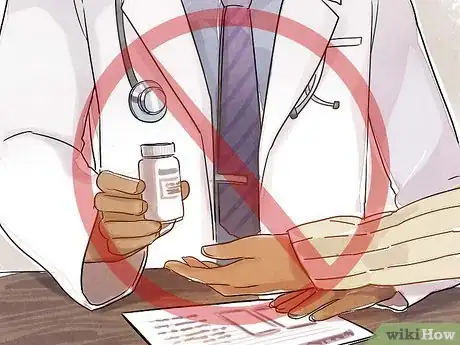
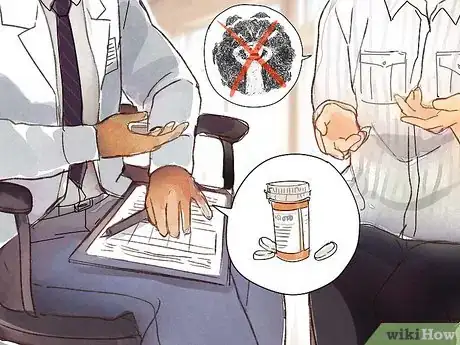




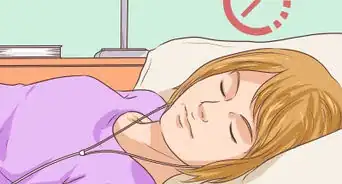
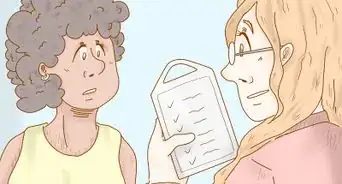
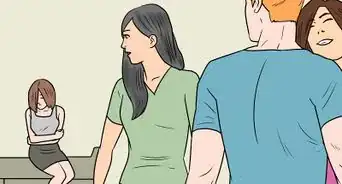
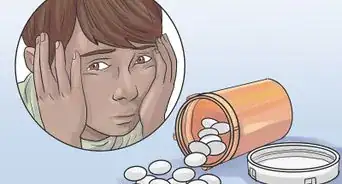





















































Medical Disclaimer
The content of this article is not intended to be a substitute for professional medical advice, examination, diagnosis, or treatment. You should always contact your doctor or other qualified healthcare professional before starting, changing, or stopping any kind of health treatment.
Read More...